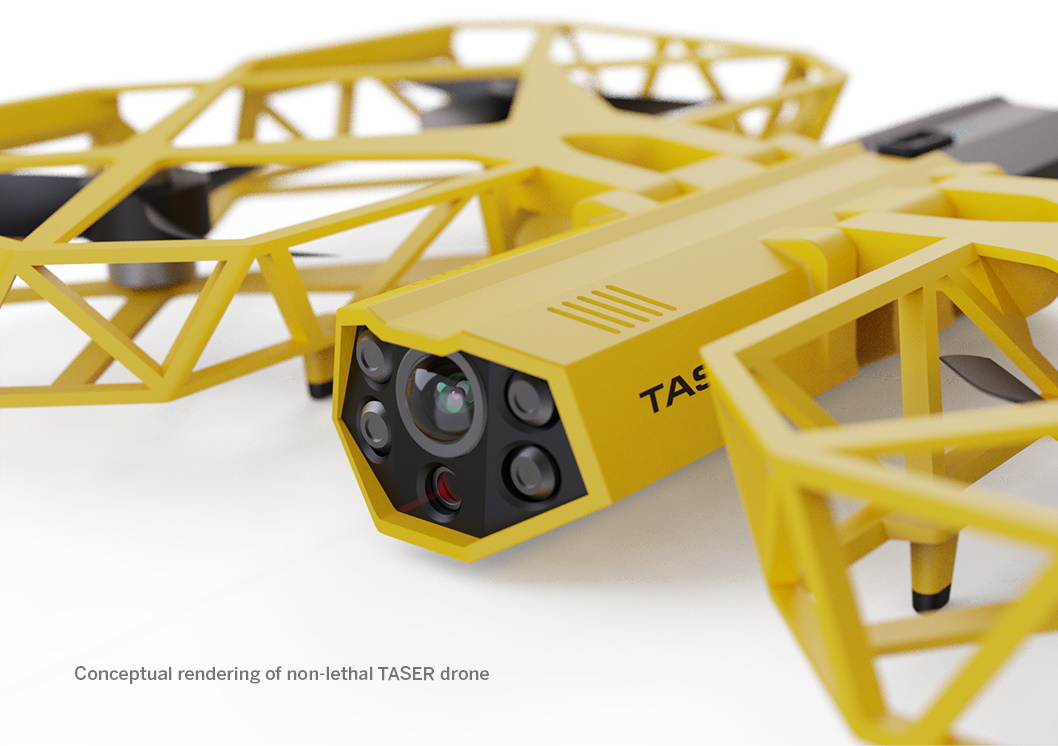In a surprising turn of events, Axon, the firm best known for its law enforcement devices like Tasers and body cameras, faces a significant backlash following a controversial proposal to use armed drones for surveillance in schools. The departure of nine members from its AI Ethics Board has cast a shadow over the company’s commitment to responsible tech deployment in sensitive contexts. As the debate heats up, we must delve into the implications of technology in law enforcement, especially when it crosses into perilous territory.
The Rise and Fall of the Ethics Board
Axon initiated an ambitious effort to integrate ethical considerations into its technology development by forming an AI Ethics Board. Comprised of various experts, this board was designed to provide oversight and recommendations regarding the implementation of cutting-edge technology in policing. Initially, the board made tangible progress; notable actions included avoiding facial recognition technology and improving regulation around license plate readers. However, in a moment of great concern, the board announced its resignation, emphasizing that Axon had strayed from the values meant to guide its technological advancements.
- A Shift in Direction: The resignation was spurred by Axon’s plan to deploy Taser-equipped drones in schools, a move viewed as alarmingly invasive by the board members.
- Communication Breakdown: The abrupt announcement regarding the drone project was made without ample consultation or engagement with the board, raising serious questions about the internal processes guiding company decisions.
The Rationale Behind the Drones
Proponents of the plan argue that having drones equipped with Tasers could serve as a rapid response mechanism to potential mass shooting incidents in schools. Yet, critics view this as an overreach and a dangerous expansion of surveillance technologies into educational environments. The former board members voiced concerns that such measures may exacerbate the underlying issues surrounding gun violence rather than address root causes.
Rich Smith, Axon’s CEO, attempted to mitigate negative sentiment by pausing the drone initiative and stressing the company’s commitment to revisit the concept with stakeholders’ input. However, doubts linger regarding whether the company genuinely values feedback or merely seeks to placate critics.
Ethics in Tech: The Bigger Picture
The situation with Axon is reflective of a broader challenge facing the intersection of technology and ethics, especially in fields that directly impact public safety and individual rights. While there is no denying that innovative technological solutions can play a crucial role in enhancing safety and security, the unchecked application of such technology can lead to unintended negative consequences:
- Privacy Concerns: The integration of surveillance systems in public spaces raises critical questions about privacy and individual liberties.
- Community Trust: Heavy-handed surveillance methods can erode trust between communities and law enforcement, counteracting the very objectives these technologies are intended to support.
- Accountability Mechanisms: Without clear oversight, the deployment of technologies like armed drones leads to ethical quandaries surrounding accountability and misuse.
Lessons for the Future
Axon’s current predicament serves as a vital case study for other companies exploring advancements in artificial intelligence and law enforcement technologies. Here are some essential takeaways:
- Prioritize Ethical Standards: Establishing a robust ethics oversight board is paramount. However, real engagement with its recommendations is essential for genuine accountability.
- Engage the Community: Listening to public sentiment and incorporating community feedback into technology development can lead to solutions that are both effective and considerate of individual rights.
- Acknowledge the Complexities: Understanding that technological solutions cannot wholly resolve societal problems is crucial. Without comprehensive awareness of the broader social context, solutions may be superficial and short-lived.
Conclusion
The story of Axon’s resignation debacle exemplifies the pressing need for accountability, ethics, and community engagement in the rapidly evolving landscape of technology analytics and law enforcement. At **fxis.ai**, we believe that such advancements are crucial for the future of AI, as they enable more comprehensive and effective solutions. Our team is continually exploring new methodologies to push the envelope in artificial intelligence, ensuring that our clients benefit from the latest technological innovations.
For more insights, updates, or to collaborate on AI development projects, stay connected with **fxis.ai**.

